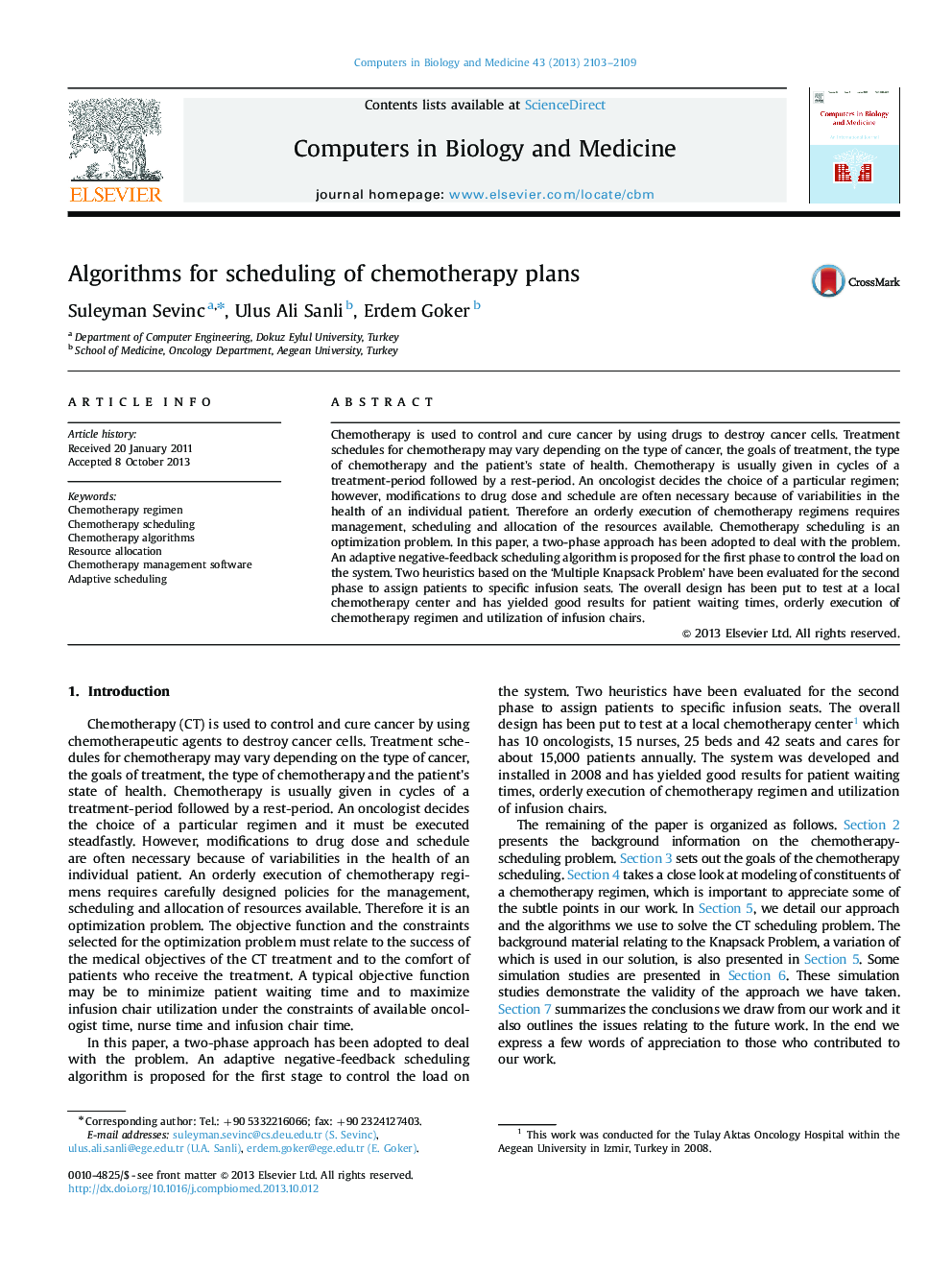| Article ID | Journal | Published Year | Pages | File Type |
|---|---|---|---|---|
| 505063 | Computers in Biology and Medicine | 2013 | 7 Pages |
Chemotherapy is used to control and cure cancer by using drugs to destroy cancer cells. Treatment schedules for chemotherapy may vary depending on the type of cancer, the goals of treatment, the type of chemotherapy and the patient's state of health. Chemotherapy is usually given in cycles of a treatment-period followed by a rest-period. An oncologist decides the choice of a particular regimen; however, modifications to drug dose and schedule are often necessary because of variabilities in the health of an individual patient. Therefore an orderly execution of chemotherapy regimens requires management, scheduling and allocation of the resources available. Chemotherapy scheduling is an optimization problem. In this paper, a two-phase approach has been adopted to deal with the problem. An adaptive negative-feedback scheduling algorithm is proposed for the first phase to control the load on the system. Two heuristics based on the ‘Multiple Knapsack Problem’ have been evaluated for the second phase to assign patients to specific infusion seats. The overall design has been put to test at a local chemotherapy center and has yielded good results for patient waiting times, orderly execution of chemotherapy regimen and utilization of infusion chairs.
